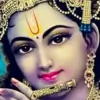"Tarko pratisthah srutayo vibhinna nasau
Rsir yasya matam na bhinnam
Dharmasya tattvam nihitam guhayam
Mahajano yena gatah sa panthah"
Translation: Argument alone has no solid foundation. The scriptures contradict each other. No one is considered a sage without having expressed an individual opinion. The truths about religious duty are concealed in the heart. Thus, the only true path is one that has been followed by great authorities.
(Mahabharata: Vana Parva)
The twelve great authorities have been listed in Srimad Bhagavatam.
Dharmaraja has explained that the religious duties have been established by God himself. Thus nobody really knows them in full-not the rishis, demigods, perfected beings, demons or humans, what to speak of the Vidyadharas or the Carnas. There are twelve of us who do know the religious duties prescribed by the lord, the Bhagavata-Dharma. We're Brahma, Narada, Shiva, the four Kumaras, Kapila, Manu, Prahlada, Janaka, Bhishma, Bali, Suka and I. Anyone who understands this secret, pure and mysterious teaching will attain immortality. (Srimad Bhagavatam)
Bheeshma Acharya is one among the highest authorities, so there's absolutely no question of doing adharma, committing a blunder or keeping "Personal Dharma" over lord. This personal dharma point arises through the widespread credence that he took a pledge to see his father's image in whoever sits on the throne and serve him. However, he didn't take such a vow. So he siding with the Kauravas becomes a lot mystifying and fascinating. The path taken by this authority needs to be understood.
Externally it seems that he was obliged to Dhritarashtra, but since he was a completely surrendered soul, his sole motivation was to execute lord's will. Srimad Bhagavatam states that whatever is your occupation, it should be executed for one sole purpose, to please Krishna. No matter whether it means being on the wrong side and getting defeated. Bheeshma Acharya himself explains to Yudhisthira that no one can know the plan of lord Krishna.
SB 1.9.16 O king, no one can know the plan of the lord. Even though great philosophers inquire exhaustively, they are bewildered.
SB 1.9.17 O best among the descendants of Bharata [Yudhisthira], I maintain, therefore, that all this is within the plan of the lord. Accepting the inconceivable plan of the lord, you must follow it.
.
In Bheeshma stuti, he utters that all the enemies were killed by his glance alone (Exactly what Krishna said in Gita). Now look at the verse below.
SB 1.9.22 yet, despite his being equally kind to everyone, he has graciously come before me while I'm ending my life, for I'm his unflinching servitor.
The above verse says it all, lord personally went to him at the time he was ready to quit his body on will, as he was completely devoted to lord's service. This is a rare privilege, which even the realized souls have found unattainable. Nobody else got this privilege, so there must have been something really different' in Bheeshma's case...! The difference is pretty clear, he simply executed Krishna's plan with full faith. We start questioning god when troubles arise in our lives, he had absolutely no complaint despite of undergoing unbearable situations, and such was his faith!
Now the question arises, why? First reason must have been to teach the world through Bheeshma Acharya, lord teaches the world through his devotees. Bheeshma wasn't just the greatest warrior at the Kaurava side, but also the most knowledgeable man of that age. So, lord's intention must have been to set an example that even a man like Bheeshma can't conquer virtue. Second cause is associated with Bheeshma Acharya's extreme glorification and liberation, nothing else (Shikhandi who was on the pandava side, was quite instrumental in his liberation). Just imagine his condition on the bed of arrows, can you? Unbearable physical agony! Yet that couldn't avert him from offering his devotional service to Krishna. There's an incident on which Yudhisthira comes to meet Krishna and gets no response as the lord's intellect was completely fixed upon Bheeshma. This proves that a pure devotee remains uninterrupted even in that particular state and it glorifies Bheeshma's spiritual achievement to a wide extent, placing him in the category of great sages. Thereafter Krishna giving him the boon curing all his physical agonies, choosing him to impart his knowledge to Yudhisthira (For his glorification) and being present at the time he quit his body on will, speaks volumes of his great character. Shanti Parva is full of Krishna praising Bheeshma. And when he was ready to quit his body, lord said that he hasn't been guilty of the slightest transgression.
Bheeshma wasn't born perfect, but he attained perfection' through his Karma. He attained nirvikalpa-samadhi because he had merged his self into thinking of the lord and his mind into recalling his different activities. He chanted lord's glories, and by his sight he began to see the lord personally present before him, and thus all his activities became concentrated upon the lord without deviation. This is the highest stage of perfection. (SB 1.9.43)
So his life teaches us how to centre our actions upon Krishna and attain perfection, human beings are meant to die like him, or else, what's the difference between a human and an animal?
Generally all the Kaurava warriors are divided in the category of adharma', misguided dharma' and selfish' intentions. I just hate it because mortals have no right to place a sage like Bheeshma with the rest when lord of the universe himself differentiated him and stated clearly that after Bheeshma's demise, the world will be a dark, moonless night. We don't own the slightest part of his knowledge to question his actions, great authorities of the supreme are to be understood and followed, not questioned. But I've no hopes because god is questioned; authorities still lie below the divine.
This is my understanding..!






































